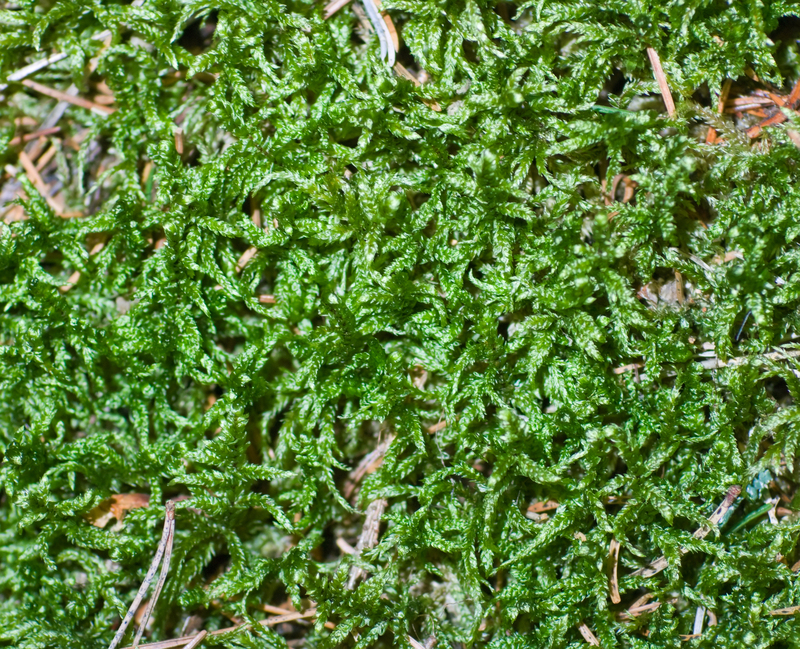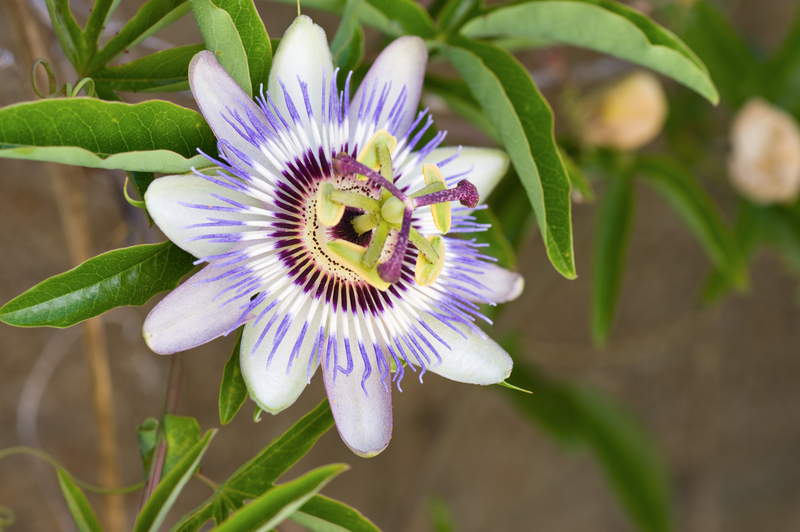Embrace Nature's Bounty with an Herb Garden
Posted on 27/06/2025
Embrace Nature's Bounty with an Herb Garden: A Complete Guide
Imagine stepping outside your door and plucking fresh basil, rosemary, or mint to enhance your culinary creations. An herb garden brings both beauty and bounty into your life, transforming even small spaces into verdant retreats. Whether you're a seasoned gardener or a curious beginner, cultivating your own herbs is immensely rewarding. This comprehensive guide explores the many benefits, methods, and joys of growing your own herb paradise.
Why Plant an Herb Garden?
From the kitchen to the medicine cabinet, herbs have played a vital role in human life for centuries. Establishing your own herb garden is a trend on the rise--and for good reason! Here are some compelling reasons to start today:
- Freshness and Flavor: Homegrown herbs are more aromatic and flavorful than store-bought ones.
- Health Benefits: Many culinary herbs have medicinal properties, aiding digestion, combating inflammation, and boosting immunity.
- Sustainability: Growing your own herbs is eco-friendly, reducing packaging waste and transport emissions.
- Cost-Effective: Cultivating herbs at home saves money over expensive packaged options.
- Aesthetic Value: Herb gardens are visually pleasing, attracting pollinators and bringing greenery to your space.
Embracing Nature's Bounty through an herb garden is more than a hobby--it's a lifestyle that reaps culinary, ecological, and therapeutic rewards.

Planning Your Bountiful Herb Garden
Successful herb gardening starts with thoughtful planning. Considering your space, sunlight, and desired herbs will ensure your garden thrives and produces abundantly. Whether you live in a rural homestead, have a suburban backyard, or a compact city apartment, there's a way to make an herb garden work for you.
Choose Your Location
- Outdoor Gardens: Traditional garden beds, raised planters, or even vertical walls can be perfect for sun-loving herbs.
- Container Gardens: Pots, window boxes, and hanging baskets are perfect for patios and balconies.
- Indoor Herb Gardens: Bright windowsills or dedicated light setups allow for year-round cultivation.
Select the Right Herbs for Your Garden
Think about which herbs you use most in cooking, teas, or home remedies. Some popular choices include:
- Basil: Essential for Italian dishes, pesto, and salads.
- Mint: Adds zest to drinks, desserts, and salads; also helpful as a digestive aid.
- Rosemary: Perfect for roasts, breads, and aromatherapy.
- Thyme: Complementary in soups, stews, and poultry dishes.
- Parsley: Brightens up almost any savory dish.
- Sage: Wonderful with meats, cheese dishes, and for medicinal teas.
- Chives: Lends a mild onion flavor to salads and baked potatoes.
- Cilantro: Key ingredient for salsas and Asian cuisine.
Tip: Group herbs according to their water and light needs for easier care.
How to Create a Flourishing Herb Garden
Once you've chosen your herbs and location, follow these steps to harness nature's bounty for yourself:
Prepare the Soil or Containers
- Use well-draining soil--herbs dislike "wet feet."
- Add organic compost for nutrients.
- For containers, ensure they have drainage holes and use a potting mix suitable for herbs.
Planting Your Herbs
- Most herbs can be started from seeds or purchased as small plants from garden centers.
- Space herbs appropriately: Check specific requirements for each species.
- Water gently after planting, and keep soil moist (but not soggy) until established.
Herb Garden Care Tips
- Sunlight: Most culinary herbs prefer 6-8 hours of sunlight daily. If growing indoors, consider supplemental LED grow lights.
- Watering: Herbs need consistent moisture but dislike being overwatered. Allow the soil to dry slightly between waterings.
- Pruning and Harvesting: Regular trimming encourages bushier growth. Always harvest from the top and don't remove more than a third of the plant at one time.
- Fertilizing: Feed herbs lightly every few weeks during the active growing season, using organic fertilizers.
Maximizing Your Herb Garden's Bounty
Gardening is about much more than planting and harvesting. To truly embrace nature's bounty with an herb garden, explore ways to use, preserve, and celebrate your herbal harvest.
Utilize Fresh Herbs Every Day
- Cooking: Add sprigs to soups, stews, salads, sauces, and marinades for unbeatable flavor.
- Drinks: Infuse water, teas, cocktails, or lemonades with mint, basil, or rosemary.
- Garnishes: Fresh herbs elevate both the taste and visual appeal of any dish.
Preserve Your Herbal Abundance
- Drying: Air-drying or using a dehydrator preserves herbs for months. Tie bundles and hang upside-down in a dry, dark place.
- Freezing: Chop herbs and freeze in ice cube trays with water or oil for easy access year-round.
- Herb Infusions: Create custom oils and vinegars for cooking and salads.
- Herbal Butters and Pastes: Blend softened butter with chopped herbs for flavorful spreads and seasoning bases.
Creative Uses for Homegrown Herbs
- Aromatherapy: Lavender, mint, and rosemary can be used for calming or invigorating scents around the home.
- Naturally Clean: Make herbal cleaning sprays, sachets, and potpourri for a chemical-free home.
- Cosmetic & Wellness Treats: Use herbs to craft homemade scrubs, masks, and teas for personal care.
- Homemade Gifts: Present loved ones with hand-tied bundles, infused oils, or seed packets.
The Environmental & Health Benefits of Growing Herbs
Sustainability Starts at Home
Starting an herb garden is a small step with a big impact on the environment. Here's how:
- Reduces Carbon Footprint: Eliminates the need for long-distance transportation of delicate herbs.
- Zero-Waste Living: No plastic packaging, no spoiled herbs--harvest what you need, when you need it.
- Biodiversity: Attracts pollinators like bees and butterflies, enhancing your local ecosystem.
- Organic Control: Less reliance on pesticides and chemicals found in conventional agriculture.
Herbs: Nature's Pharmacy
Loaded with essential oils, vitamins, and antioxidants, herbs are more than flavorings--they are health allies. For example:
- Basil is rich in vitamin K and has antibacterial properties.
- Thyme contains thymol, a powerful antimicrobial agent.
- MInt helps with digestion and can soothe headaches.
- Parsley is an excellent source of vitamin C and iron.
- Rosemary aids memory and reduces inflammation.
Incorporating a variety of herbs allows you to enjoy diverse flavors and a spectrum of health benefits directly from your backyard or windowsill!
Overcoming Common Herb Gardening Challenges
Even the most robust gardens face occasional hurdles. Here's how to address some typical issues:
Pests and Diseases
- Aphids & Mites: Spray with a gentle soap solution or introduce ladybugs.
- Powdery Mildew: Ensure good airflow and avoid overhead watering.
- Root Rot: Prevent waterlogging by using well-draining soil and pots.
Growth Problems
- Leggy Growth: Increase sunlight exposure and pinch tops regularly.
- Yellowing Leaves: Check for water imbalance or nutrient deficiency.
- Bolting (Going to Seed): Harvest frequently and provide ample water.
Remember: Herbs are generally resilient. Stay observant, act quickly, and your herb garden will continue to flourish.
Seasonal Care for Your Herb Garden
Spring and Summer
- Plant new herbs and transplant seedlings after the last frost.
- Increase watering and feeding as growth accelerates.
- Protect delicate herbs from extreme heat with partial shade if needed.
Autumn
- Harvest and preserve herbs for winter use.
- Mulch outdoor plants to insulate roots from cooling temperatures.
- Begin transitioning potted herbs indoors before the first frost.
Winter
- Grow herbs on sunny windowsills or under grow lights.
- Reduce watering; herbs grow more slowly in cooler months.
- Continue snipping small amounts for fresh flavor all season.
Design Ideas for Stunning Herb Gardens
Your herb garden should be as beautiful as it is practical. Consider these creative designs:
- Raised Beds: Separate herbs by type, or create a themed bed (Italian, French, tea herbs, etc.).
- Vertical Gardens: Use planters, recycled pallets, or wall pockets for space-saving, decorative displays.
- Spiral Herb Garden: Build a spiral mound using stones--create microclimates for different herbs.
- Companion Planting: Pair herbs with vegetables or flowers for natural pest control and enhanced growth.
- Kitchen Windowsill: Place a row of small pots along your sunniest window for instant access.

Herb Garden Inspiration: Success Stories
Many urban dwellers and rural families alike are embracing nature's bounty by creating personal green oases:
- Apartment Balconies: Self-watering boxes filled with basil, chives, and oregano transform city balconies into lush retreats.
- Family Backyards: Children help harvest and cook with fresh chervil, fostering both connection and healthy eating habits.
- Community Gardens: Neighbors collaborate on raised herb beds, sharing maintenance and doubling the harvest.
- Indoor Enthusiasts: LED grow setups on shelves produce prolific thyme and cilantro all winter long.
Each garden, large or small, provides fresh flavors, holistic wellness, and a deeper connection to nature.
Start Your Own Herb Garden Today!
Embracing nature's bounty with an herb garden is a journey of discovery, wellness, and abundance. Whether you grow a single pot of mint or a vast array of flavorful greens, your culinary adventures and living space will be enriched beyond measure.
- Take the first step: Choose a few simple herbs and suitable containers or plots.
- Learn as you grow! Each season brings new insights and flavors.
- Share the bounty: Invite friends or family to join you on this herb gardening journey!
Don't wait--unleash the myriad flavors, fragrances, and health benefits of nature's gifts by starting an herb garden of your own. Embrace nature's bounty and transform both your meals and your life, one leaf at a time!
Latest Posts
Urban Dwellers' Guide to Vertical Gardening
The Secrets of Professional Hedge Shaping Techniques
Garden Seating Area Inspirations for Every Style

